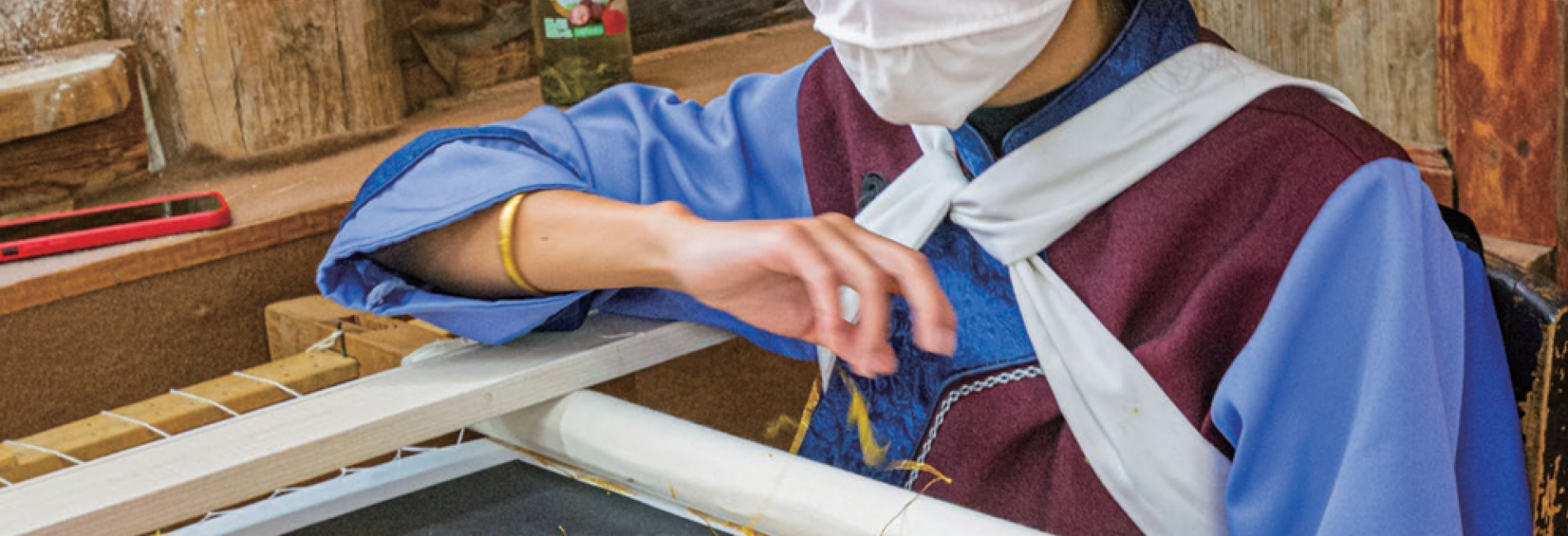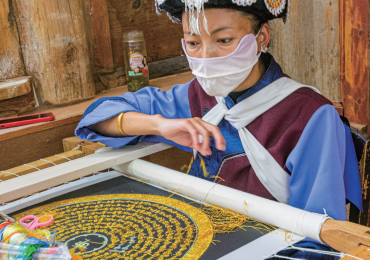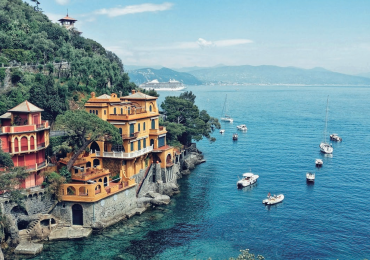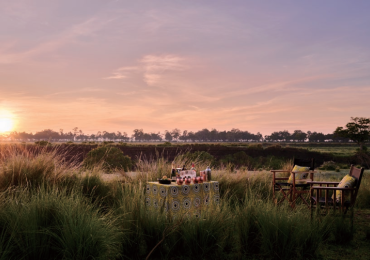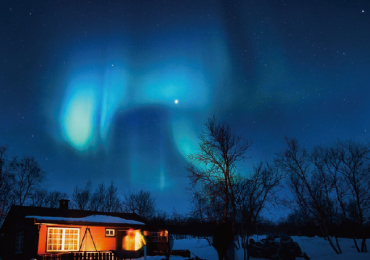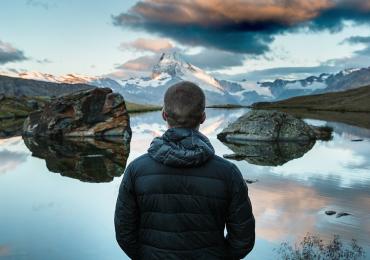China’s Spectacular Yunnan
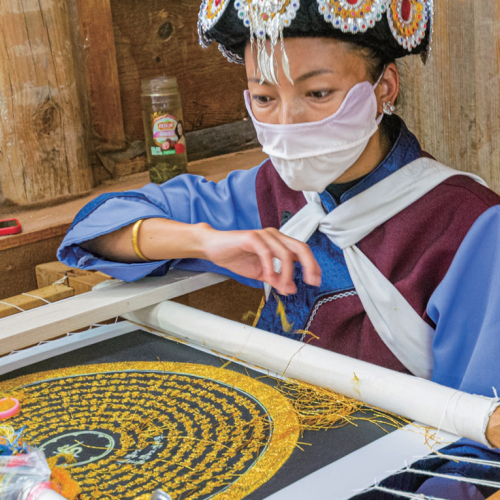
Roger and Jackie Harris venture to China’s eighth-largest province, a land of temples. Towering mountain ranges and ethnic tribes.
Photo by: Roger Harris
China’s southwestern province of Yunnan is regarded as the country’s most diverse, with its snow-capped mountains, rice terraces and deep gorges. It’s also home to 25 ethnic minorities, almost half of China’s 55 officially recognized ethnic groups. Other than the majority group, Han Chinese, Yunnan’s ethnic group include Bai, Yi, Dai, Naxi, Hani and Tibetan. Many of the smaller groups live only in Yunnan. Around 50 per cent of tourists visiting China make a stop in Yunnan, and thanks to improved infrastructure and the opening of new luxury resorts, it’s a brilliant time to visit this fascinating destination.
Being such a large province – Yunnan is slighty bigger than Germany – it would’ve been impossible to take in its entirety in a single short visit. So, we decided to focus on the north, and to stay in four of the beautiful Tibetan-styled Songtsam luxury boutique lodges. Founded in 2001 by Yunnan native and ethnic Tibetan, Baima Dorji, a renowned documentary filmmaker, the lodges immerse guests in a Tibetan ambience within the natural splendor of their surroundings. Since then, his vision has expanded into Tibet, and Songtsam now totals 11 magnificent properties.
Our tour began with a stay in the Hylla Vintage Hotel on the outskirts of Baisha village, which is close to Lijiang and offers 35 luxurious rooms in a scenic rural setting that exudes tranquility and relaxation. Renowned for its corporate events and stylish weddings, the property sits at the foot of Yulong Snow Mountain, also known as Jade Dragon Snow Mountain, and blends art and design with unique architecture and stunning vistas. The mountain tops out at 5,600 meters above sea level and forms part of the wider Yulong Mountain range, which hosts the upper Yangtze River. We enjoyed wandering around Baisha, with its traditional-styled buildings and ethnic Naxi handicrafts.
The Songtsam Lijiang Linka Lodge formed our introduction to the Songtsam experience with its warm wood panelling, Buddha statues and Tibetan rugs. The attentive service was exemplified by the provision of Kung Fu slippers that stayed with us for the rest of the trip. Another luxe option is Amandayan, which sits at the top of Lijiang’s Lion Hill overlooking the narrow lanes of the UNESCO-listed Old Town.
Yulong Mountain sits within the Yulong Snow Mountain National Scenic Area and National Geological Park, a 5A classified scenic area, making it one of the leading tourist attractions in China. We rode a cable car – with our trusty cans of compressed oxygen to alleviate any signs of altitude sickness – 4,500 meters up to watch folk musical, ‘Impression Lijiang’ in the Jade Dragon Snow Mountain Open Air Theatre. The show is directed by Zhang Yimou, the celebrated film director, producer, writer and actor responsible for the opening and closing ceremonies of the 2008 Beijing Summer Olympic Games and the 2022 Beijing Winter Olympic Games.
Yimou has created a series of outdoor folk musicals in China under the title Impression, with singing and dancing demonstrating the traditions and lifestyle of the local ethnic people, and it’s a don’t-miss. Another popular activity for visitors – something we noticed almost everywhere we went – is hiring local ethnic costumes and posing for photographs against the scenic landscape.
Travelling northward by road to Tacheng took us to our next Songtsam Lodge, woth more stunning views across terraced fields. A short hike into the nearby Yunnan Golden Monkey National Park afforded close-up encounters with these rare primates, which are endemic to China. Visiting Xiangbi Mountain, we found a temple fronting the Dharma Cave, a pilgrimage site honoring the memory of Bodhidharma, who is said to have lived there for 10 years. We encountered some followers who were prostrating themselves around the mountain over a period of two days as part of their pilgrimage. Another group of ethnic Tibetan women had a similar idea, but their goal was to squeeze themselves through a gap between two rocks with the hope of propitious outcomes.
Dongzhulin monastery in Benzilan Town is home to some 500 Yellow Hat monks. The interior is adorned with myriad cultural relics and statues along with colourful flags, paintings, religious instruments and sculptures. From here, we moved on to Songtsam Lodge Meili, located at around 3,300 meters elevation in the serene village of Gujiunong, populated by just five families. The Lodge affords stunning views of Mount Kawagebo, which, at 6,740 meters, is part of the Meili Snow Mountain Range, consisting of 13 peaks exceeding 6,000 meters and bordering Tibet.
Continuing onto Songtsam Lodge Benzilan took us past Moon Bay of the Jinsha River, which is the Yangtze’s first bend as it doubles back on its course to the sea. Our final stay was at Songtsam Lodge Shangri-La, allowing for a visit to Songzanlin Monastery, known as the “Little Potala Palace” for its resemblance to Lhasa’s fortified monastery. In 2001, the county’s name was changed to Shangri-La after the fictional land of the 1933 James Hilton novel Lost Horizon, in an effort to promote tourism in that area. To round off our Yunnan visit, we enjoy two nights at the Bayan Tree Ringha outside Shangri-La, which features several traditional Tibetan Farmhouses along a hillside overlooking a picturesque valley.
Visiting Yunnan offers an immersive encounter with China’s ethnic diversity, with a hefty taste Tibetanism in the mix. Against the backdrop of dazzling scenery, traditional architecture, a well-developed transport infrastructure, detectable regional food and old-style hospitality, the experience is utterly unforgettable.


 Whatsapp
Whatsapp



